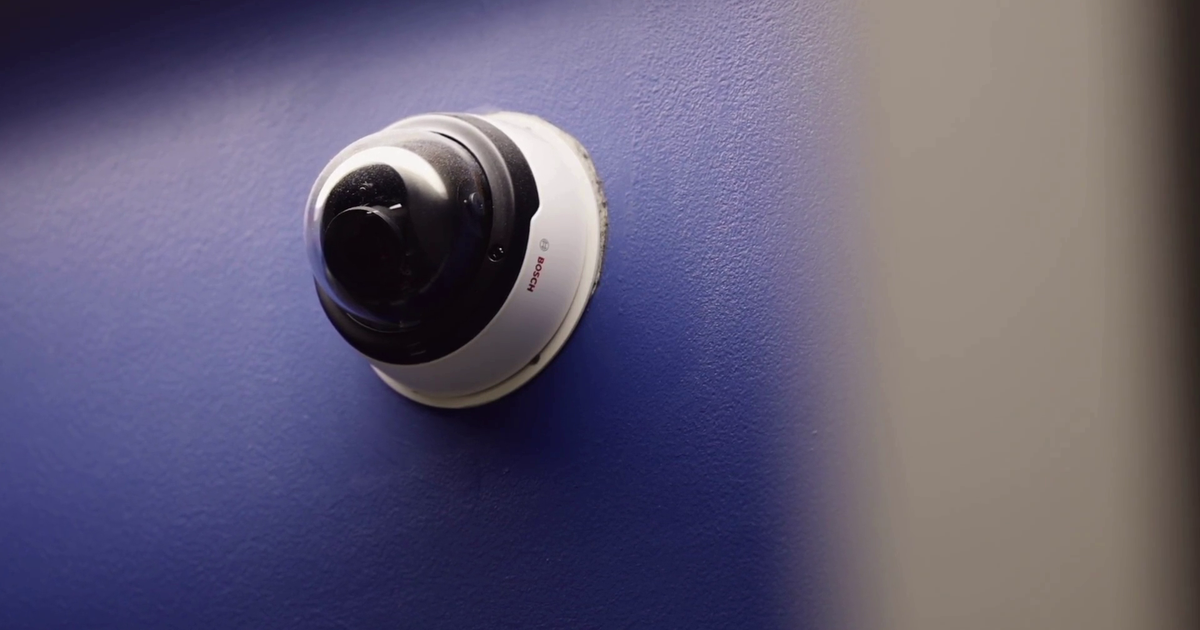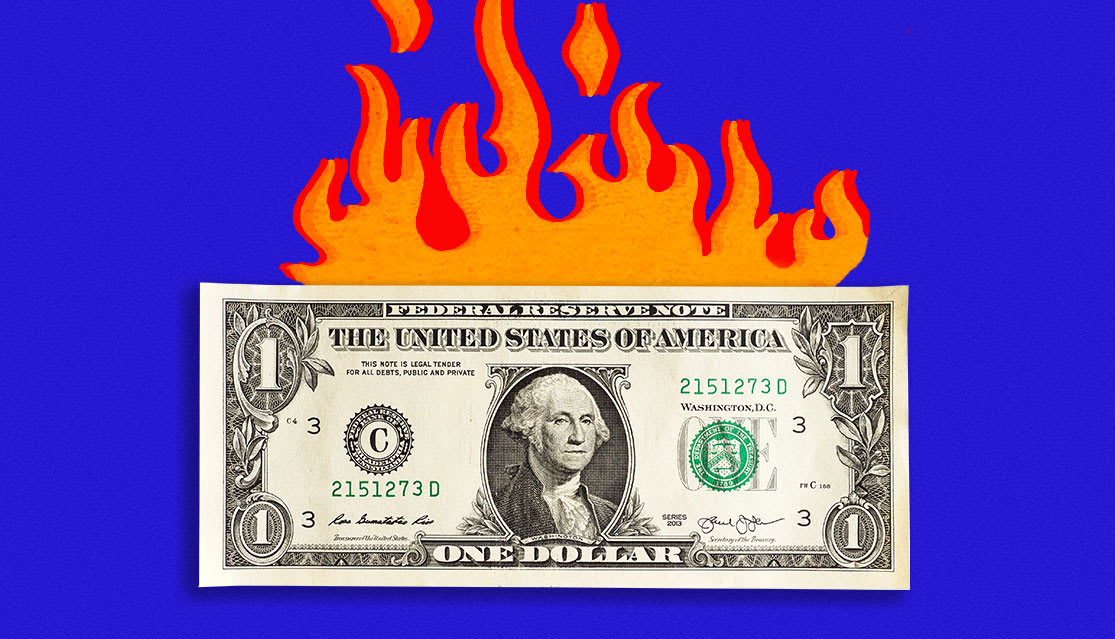CBS News poll: In economic views, inflation outweighs jobs
This week's positive jobs report and the stronger employment rate aren't entirely lost on Americans — just outweighed when they rate the economy.
Many do say the job market is good and that jobs have increased over the last year — but it's still inflation driving views, and even those who say the job market is OK still don't rate the economy well. Americans are basing this on personal experience: two-thirds say higher prices have been difficult or even a hardship, and now forcing many to make cutbacks.
And while the White House has often stressed the jobs number, people's focus on prices continues to bring negative ratings for both the economy and the president's handling of it.
Most rate the job market in their community favorably, and just over half say that the number of jobs in the U.S. has increased in the last year.
But even those who rate the job market positively are slightly more inclined to say the national economy is bad, and they attribute that to high prices.
When people say the economy is bad, it isn't because of jobs. Just 17% give that as a reason. Negative judgments are overwhelmingly based on inflation, and gas prices.
Higher prices are leading people to say they're making cutbacks, especially on more discretionary items like entertainment and travel. (That may, of course, have a wider impact on the economy later.) About half are cutting back on food and groceries, and this is especially the case among those with lower incomes.
Partisanship does play a role in people's views of the state of the national economy, as it has for years. From the start of President Biden's presidency, Republicans have held more negative news of the economy than Democrats have. (This is not unique to this president. During Donald Trump's presidency, Republicans were more positive about the economy than Democrats.)
Yet the reasons they give, when they do rate it as bad, are common across parties. All blame it largely on higher prices. Then, for Republicans, they also say they don't trust the Biden administration, and that also ranks near the top of reasons they say the economy is bad.
Mr. Biden gets his lowest approval ratings on the economy and inflation. And on gas prices specifically, most think he could be doing more to lower them. Nearly all Republicans share this view. They believe his policies are doing "a lot" to contribute to higher gas prices.
Democrats are more likely to blame oil and gas companies, the war in Ukraine and sanctions on Russia than they are Mr. Biden, but nearly 4 in 10 Democrats do think he could be doing more, particularly those with lower incomes.
That said, views on what a president can do about gas prices have historically involved partisanship as much as any institutional view of the office: it's usually those who oppose a president who've been most likely to think a president has a lot of control over gas prices at a given point.
These pocketbook issues — the economy and inflation — rank as top priorities for Americans, and Mr. Biden continues to get low marks on handling them.
And the president's overall job approval is 42%, that's down one point from last month; it's been hovering in the low 40s for months now, and that tick down does mark its lowest point yet.
In addition to the economy and inflation, immigration and crime are also of concern (especially among Republicans), along with the situation with Russia and Ukraine, on which Mr. Biden gets relatively better ratings.
Immigration: A high-priority issue for Republicans
The Biden administration has drawn some criticism from both the right and left for its handling of immigration. Republicans, for whom immigration is a higher issue priority than it is for Democrats, want the administration to be tougher on those trying to cross the border into the U.S. and say those who show up at the border should be expelled from the U.S. immediately.
Most Democrats approve of the president's overall handling of immigration generally, but are more mixed on how the administration is handling immigrants trying to cross the border. About half think it is handling it right, the rest divide on whether the administration should be tougher or easier on those trying to cross. Liberal Democrats are more inclined than moderate Democrats to say the Biden administration should be easier, while moderate Democrats are more apt than liberal ones to say tougher.
Most Democrats, along with independents, think those attempting to cross the border should have a chance to go through legal proceedings in the U.S. rather than be expelled immediately.
How people view immigrants and the impact of immigration drives their views on border policy. Those who think immigrants make U.S. society worse in the long run (a view voiced by a majority of Republicans) think the administration should take a tougher approach at the border. People who feel immigrants have a positive impact on society more generally are less apt to think there needs to be a tougher approach.
Crime: Partisan splits on how to help prevent it
Views on crime also divide partisans — along with differences in priority. Three in four Republicans say it is a high priority issue — for them it tops the list just above immigration — and they overwhelmingly give Mr. Biden low marks on handling it. Democrats, who rank it near the bottom in terms of their issue priorities, generally think Mr. Biden is doing a good job on it.
In efforts to prevent violent crime, most Americans would like to see more mental health and treatment services and more jobs and economic opportunities for people. But Democrats and Republicans do diverge on ways to address the issue. Republicans are far more supportive of stricter sentences for violent offenders and more funding for police. Democrats are more apt to prioritize treatment services and economic opportunities. And most of them would also like to see fewer guns available to people.
Few Americans from either camp think less funding for police is the answer.
Despite the concern about crime as a general issue, most Americans do feel safe in the areas where they live and work. This is true even among those who consider crime a high priority issue. Three in four Americans say they themselves feel at least somewhat safe, and large majorities feel this way regardless of their political affiliation or whether they live in urban, suburban, or rural areas, though lower income Americans are less likely to say they feel very safe than wealthier Americans.
Ketanji Brown Jackson
Amid the Senate confirmation of the first Black woman to the U.S. Supreme Court, more Americans support confirmation of Ketanji Brown Jackson than oppose it. Views break down along party lines, with most Democrats in support (along with a plurality of independents) and most Republicans opposed. Republicans expect Jackson to be too liberal, while Democrats think she will be about right.
This CBS News/YouGov survey was conducted with a nationally representative sample of 2,062 U.S. adult residents interviewed between April 5-8, 2022. The sample was weighted according to gender, age, race, and education based on the U.S. Census American Community Survey and Current Population Survey, as well as to 2020 presidential vote. The margin of error is ± 2.8 points.
























